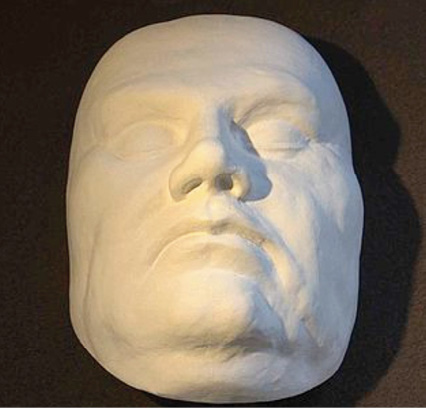“Blessed are the dead who die in the Lord.” (Revelation 14:13)
Only a few hundred yards separates the birth and death places of Martin Luther (10 November 1483 – 18 February 1546). For a man who never left home or wandered far, this would not be incredible. But for a man of Luther’s stature who traveled extensively in his medieval world, to be born and die in the tiny village of Eisleben, Germany, is remarkable.
By the end of his life Luther’s writings and hymns had spread abroad and had stood up to the power of the emperor and the pope. One would expect a man of great renown to die in an equally prominent city, but Luther had good reason to be at Eisleben at that time.
A dispute had erupted between brothers regarding finances and the local mining industry. This disruption had a negative effect on the extended family of Luther still living in the area and still in the mining business, as Luther’s father had been. Despite the weather (it was cold and bitter) and Luther’s health (it was failing fast), he felt it important to be present to oversee the negotiations.

Luther scholars have studied letters to, from, and about Luther; and have accumulated quite a list of ailments from which he may have been suffering at the time of his death. These include Meniere’s disease, vertigo, fainting, tinnitus, cataracts, kidney and bladder stones, arthritis, ear infection, ruptured ear drum, angina, and digestive troubles. It is no wonder that at 62 years of age Luther called himself an “old man,” and declared to a fellow pastor, “If I get back to Wittenberg, I will lie down in a coffin and give the maggots a fat doctor to eat.”
Despite the gallows humor, Luther kept busy with correspondence with his wife Katie and friend Philip Melanchthon. He attended meetings every two or three days, and he preached several sermons—on January 31, February 2 and 7, and a final one on February 14 or 15. Luther uncharacteristically sat as he preached this last sermon and was unable to finish the service. It was clear to those close to him that the end was nearing.
We have eyewitness accounts of Luther’s last several hours from his friends, Pastors Justus Jonas and Michael Coelius. It was more than a morbid curiosity that prompted these gentlemen to record the events for posterity. They knew that the enemies of Luther would like nothing more than to cast aspersions on his last moments in order to throw doubt and ridicule on all his work. It was the prevailing thought at the time that if an individual were to die suddenly or unawares it was evidence of a punishment from God, or the mark of a grievous sin. As a result, there was a striking scene in which the pastors shouted loudly at Luther so all the house could hear, “Reverend Father! Are you ready to die trusting in your Lord Jesus Christ and to confess the doctrine which you have taught in his name?” And Luther distinctly answered, “Ja.”
Thus, the reverend doctor slipped from the coils of this world into the arms of his Savior. When Melanchthon heard of the death of his beloved friend and coworker, he expressed his grief by paraphrasing 2 Kings 2:12, “Alas, the charioteer of Israel has fallen!” News of the good doctor’s death spread quickly, and many mourners accompanied the remains on their journey back to Wittenberg. There the body was interred beneath the pulpit of the Castle Church that Luther had served so well.
Whether our lives are long or short, it is important to remember that it is God who directs them. “In your book were written, every one of them, the days that were formed for me, when as yet there was none of them.” (Psalm 139:16 ESV) So may we strive to live our lives as Luther did, to the glory of God and the benefit of our fellow man.
is a retired teacher. He lives in Fond du Lac, Wisconsin.

